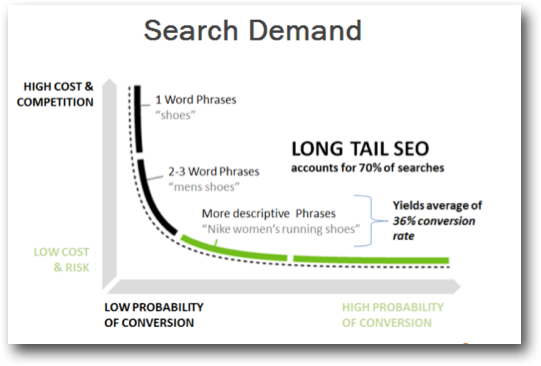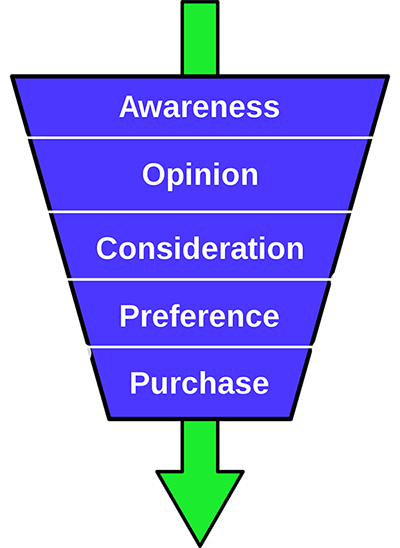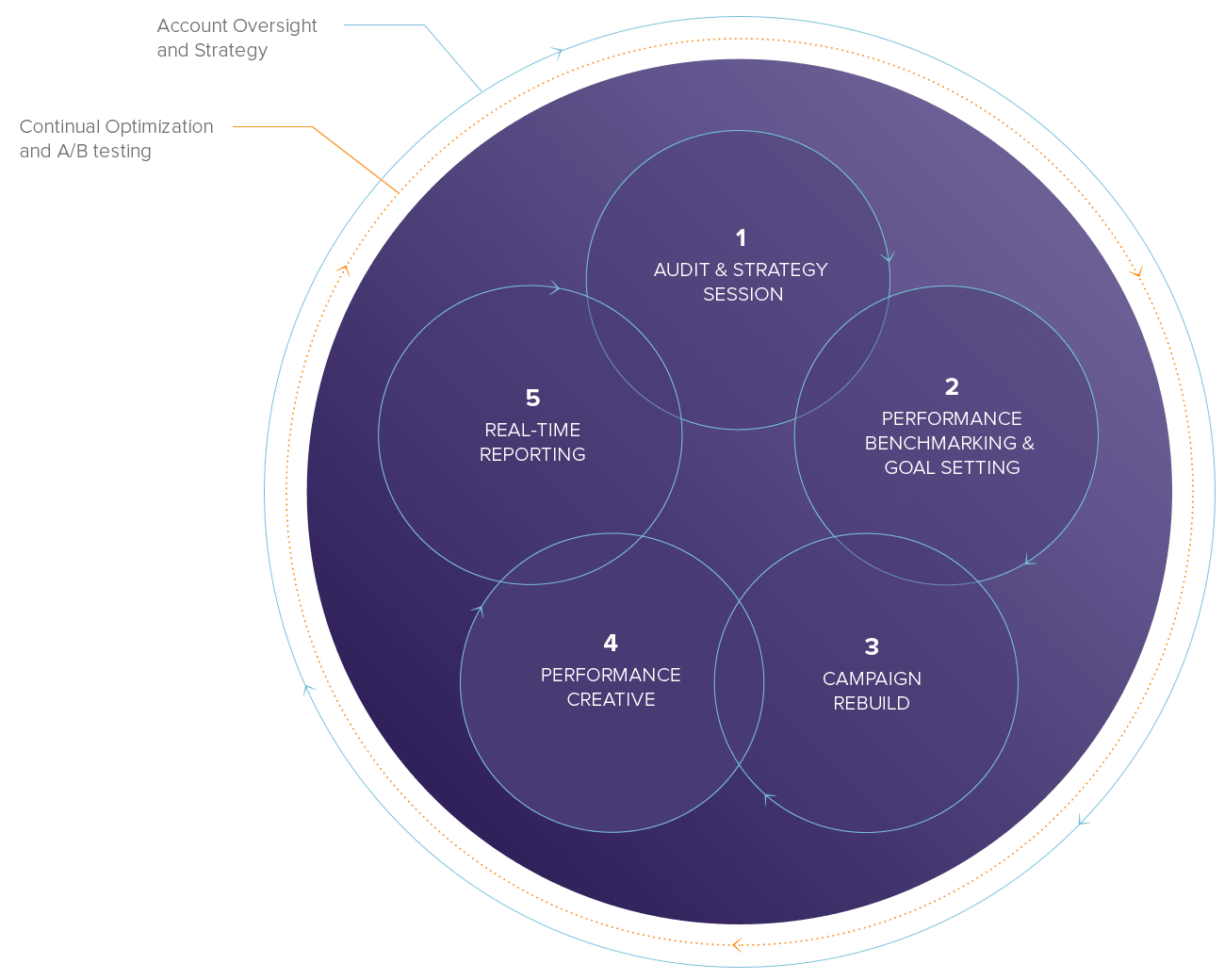The Secret to Successful Keyword Strategy
In my recent blog post, 8 SEO Steps for New Site Development, Step #1 was listed as “Keyword Discovery.” Let’s talk about what keyword research and keyword discovery mean.
The single most important step toward SEO success is to select the right keywords. But keyword ranking alone is not the best measure of SEO success. Keyword ranking by the search engines is volatile by definition. Rank goes up and down from one week to the next, often with no obvious explanation. You may even find a keyword drop in rank while the page you’ve optimized for it is generating increasing traffic! So don’t get stuck on your original keyword selection and where they rank at any given moment! And certainly don’t panic when someone walks into your office and says, hey, I searched on “blue widgets” and we were not on the first page of Google!
Use keywords as a strategic tool. Changes in rank are part of an ongoing feedback loop between you and the search engines, giving you clues as to the relevance and authority of specific pages on your site and to the competitive landscape.
How to Pick the Right Keywords
Begin with an initial set of keywords that can answer these 2 primary questions:
- What are your prospects searching for?
- What fits your business model?
Look for keywords for which there is a fair amount of search volume, but not so much that you cannot possibly compete.

Figure 1 courtesy of Hubspot
Aim for long tail keywords – keyword phrases made up of 3-4 words. As indicated by the green “short head” of the graph, there are many searches on short, general terms of one and 2 words each, but so many that these are too competitive for most smaller brands to aim for. The long yellow tail in this graph shows the countless variations of searches on long, specific phrases – way more in aggregate than on any particular individual phrase.
Target the long tail – The more specific the search phrase, the more likely the searcher is close to a decision. But- having said that, don’t forget that SEO is a large funnel and you should aim higher as well.
The Buyer’s Journey or Purchase Funnel
While a search on long tail keywords usually suggests a decision is near, it’s important that you do not ignore searchers in other stages of the buyer’s journey.
Remember, people begin their search process as they first become aware that they have a problem or a challenge for which they do not know the solution. For people in those stages, your site needs to provide general information about their pain points, NOT about the genius of your product. Show that you understand the issues and give them a reason to come back. Optimize for keywords related to the problem you solve.
Further along in the funnel, their interest will grow and you might succeed in signing these visitors up to a newsletter. Some may download white papers or case studies.
As they dig deeper and look at alternatives, they may want opinions of others, testimonials and more detailed case studies. Product details and options become more important.
All along this journey their keyword searches change. They evolve and are fine-tuned to generate increasingly specific search results, so consider your best keywords and content for users in each stage of the funnel. Offer a variety of media types as well, including video at all stages.

Figure 2 “Purchase-funnel-diagram” by Steve simple – Own work. Licensed under Creative Commons Attribution 3.0 via Wikimedia Commons
Match the Keywords to your Pages
Pair every keyword phrase from your list with a specific page on your site.
If you have a keyword in your list of top phrases for which there is no obvious page, then you have a content opportunity. In fact, you have a content requirement. What are the sites that rank for that phrase? Are they actual competitors? If you are certain this is a good keyword then you need to create some content for it, following the guidelines above.
If you have pages with no associated keywords, then re-evaluate those pages. Are there good keywords that should be on the list? Or are these pages superfluous? Do they serve your prospects, clients, or visitors, if not in search, then once they are on the site? Be sure every page has a job.
Tracking and Monitoring Keywords
So is a page one ranking the measure of success? Well it’s nice to have for sure, but as I said earlier, do not make this your sole measurement. Your rankings will change, sometimes quite frequently.
When an important keyword drops, check if visits to the page have dropped as well. See if you can determine who edged ahead and why. Are there better, or more current variations of the term that should be worked into the content? Is the page ok, but you are tracking the wrong term? Perhaps your page needs freshening. Are there captivating content types on the page? Are visitors engaging with the page and clicking through to other pages? Does the page load quickly? Are visitors coming from mobile or a desktop primarily? How does your page perform in each case? All of these factors could influence your ranking.
Even if you don’t see a problem, check often. While you may be happy with your site’s performance at any given moment, remember, if you aren’t improving your site, your competition may be.
You need keywords that enhance your brand, keywords and content for each stage in the purchase funnel, keywords that bring in traffic, keywords that provide info, and more.
Your business may require seasonal keywords. If you sell summer apparel, what are your prospects doing during the winter? How do you adjust your strategy? Do more branding. Do some goodwill and PR. Focus on warmer locations? Work on your site?
But ultimately, you want to build on keywords generate quality traffic and keywords that convert.
As you track performance, look at which URLs on your site serve as landing pages. Which URLs get the most pageviews? Then think about the keywords for those URLs. Rinse and repeat. If your keyword strategy is generating traffic but your conversion rate is limping along, you may need to do a full conversion analysis and (topic for another post).
Your success, in the long run, will be based on conversions: How many people buy or fill out your lead generation form.
If you want some support with your SEO, keyword, and content strategy, give us a shout. Or arrange for a free discovery call today!












